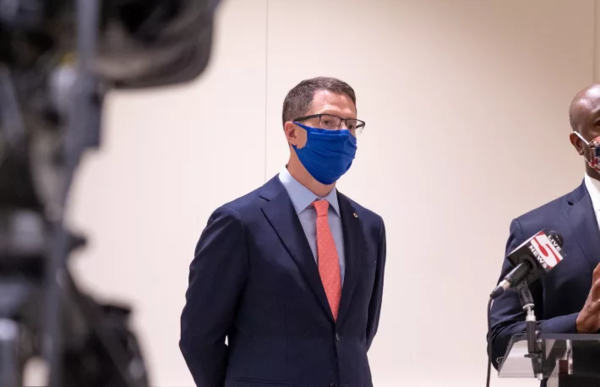

It is expected that banks subject to US federal regulation will be able to use stablecoins for payment and settlement.
The Monetary Authority (OCC), which oversees U.S. banks, issued a legal interpretation opinion on whether federally regulated banks and financial institutions can independently verify nodes, that is, participate in the operation of blockchain networks or use stablecoins. Published.
OCC stated in its opinion that financial institutions can participate as nodes of the blockchain and store and verify payment data.
In a separate press release, OCC warned that all banks participating in blockchain node verification should pay attention to operations, regulatory compliance, and fraud risk.
OCC said, “Blockchain networks may have greater resilience compared to other payment networks,” as it is difficult to manipulate due to the large number of nodes required to verify transactions.
Christine Smith, chairman of the American Blockchain Association, tweeted, “OCC’s opinion said that the blockchain has the same status as the global financial network, such as SWIFT, Automatic Clearance Exchange System (ACH), and Fedwire. “It is stated.”
Currency Supervisory Commissioner Brian Brooks, from Coinbase, the US cryptocurrency exchange, made a statement and while other countries are building their own real-time payment systems, the US is a technology to replace the existing real-time payment system through cryptocurrency, especially stablecoin. It argued that development “has relied on” the private sector.
Monetary Supervisory Commission Brian Brooks expressed his support for stablecoins last month by delivering a letter to the presidential working group on financial markets that outlined how stablecoin regulation should be implemented in the United States.
President Donald Trump recently appointed Brian Brooks for the second time to serve as the head of the Monetary Authority for a five-year term. However, it is unclear whether the Senate will schedule a vote for approval. As of the time of writing, it is unlikely that a vote for approval of Brian Brooks will take place before January 20, when President-elect Joe Biden begins his term.
The 4th of the publication of the OCC’s statutory interpretation opinion on the use of stablecoins by the Federal Bank was the last day when the Financial Crimes Enforcement Office (Finsen, FinCEN) under the US Treasury decided to receive comments and feedback on personal wallet travel rule regulations.
There are also concerns that Treasury Secretary Stephen Manusin and the Treasury-affiliated agencies are trying to amend the rules too quickly with the completion of the public opinion gathering process in 15 days, which is shorter than the usual 30 days.
“(OCC’s Opinion) shows that there is no full-scale attack on cryptocurrency. Also, within the government, we realized that the cryptocurrency (blockchain) network could be the basis of future payment systems and other financial services. It can be seen that there is a’bright side’. So we welcome this interpretation.” -Christine Smith, President of the American Blockchain Association
Translation: In-sun Jeong/Coindesk Korea
Reports and press releases should be sent to [email protected].
